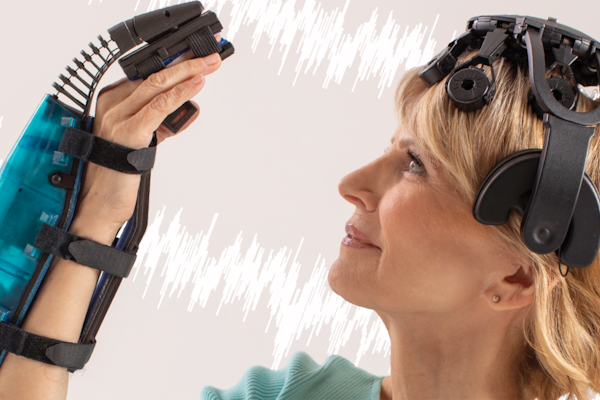A helping hand
Meet the two scientists behind the IpsiHand, an innovation approved by the FDA in 2021 that is helping patients debilitated by stroke move again

Collaboration across disciplines is integral at WashU, often yielding life-changing discoveries. In 2002, when Eric Leuthardt, MD, and Dan Moran were introduced to each other by their department chairs, no one could have predicted it would lead to a collaboration that is reshaping the future of neuroscience.
Moran, professor of biomedical engineering at the McKelvey School of Engineering, was then a new faculty member; and Leuthardt, now a professor of neurosurgery, was a resident at the School of Medicine. What started as a mentorship quickly evolved into a research partnership and a lasting friendship.
“Collaboration is key,” Moran says. “Eric and I feed off each other, and then you get a gestalt. It’s not like, ‘Oh, you go do x, I’ll go do y, and we’ll put these two things together.’ It’s daily interactions and epiphanies.”
Leuthardt says he’s learned engineering principles from Moran, such as bioelectric phenomena in the brain and analytical analysis. “And as a neurosurgeon,” Leuthardt says, “I think I contribute to Dan’s insights when we think about clinical applications.”
This shared learning led the two researchers to their big idea, the IpsiHand, which makes movement possible again for patients debilitated by stroke. And that’s just the beginning. The device is also unlocking new possibilities in neurotechnology, including the reforging of neural networks once thought lost.
Read the full story here.




